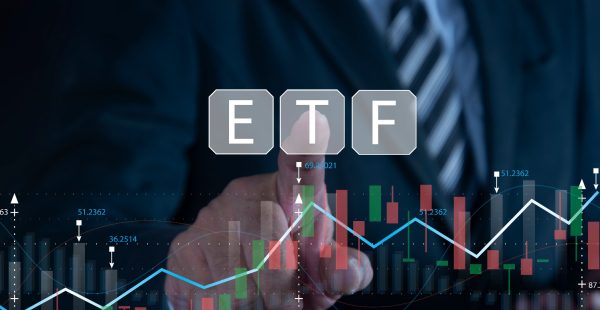Australia’s ETF market swells to new record

Australia’s Exchange Traded Fund (ETF) market grew 33% over the past year to $177.6 billion with 346 products available, new figures from ETF specialist Global X have revealed, largely driven by a surge in inflows and strong returns in technology and crypto stocks.
Overall growth in the local ETF market – up from $134.0 billion in funds under management in December 2022 to $177.6 billion in December 2023 – was driven by a more than $15 billion increase in net inflows, positive market movements (which contributed $17.6 billion), and numerous unlisted active funds converting into active ETFs, Global X noted.
Unsurprisingly, the majority of net inflows were directed towards what Global X referred to as “low-cost vanilla ETFs”, with Vanguard’s Australian Shares Index ETF and Betashares Australia 200 ETF attracting the highest net flows over the year, at $1.5 billion and $1.1 billion, respectively.
Bonds ETFs have been the most popular asset class for investors over the past year, attracting $5.5 billion in net flows (representing around 37% of the market net flows compared to the prior years’ 25% share). This was closely followed by Australian shares (at $5.2 billion) and global shares (at $3.4 billion)
Cash ETFs also saw significant popularity, garnering nearly $1 billion in net flows, with investors “enticed by the prospect of higher interest rates”.
Despite the surge in the number of active ETF products on offer (representing around 55% of the new fund launches last year), the bulk of the net flows continue to pour into index-based products, reflecting, Global X said, “investors preference for passive investment strategies”.
“This is in stark contrast to other areas of the world, like the US where active ETFs made up a quarter of the net flows and a staggering 81% of new launches,” Global X wrote.
Locally, active ETFs saw around $1 billion in net outflows (the second consecutive year of net negative flows), primarily from the Magellan Global Fund (Open Class) (Managed Fund) (MGOC), which alone lost $2.5 billion in net flows, Global X data revealed.
“Considering the widespread underperformance of the majority of active managers and their low levels of persistence, the trend towards passive investing through low-cost vehicles like ETFs is likely to continue for many years to come,” the firm wrote.
Best and worst performers
On returns, among the best performing sector-based ETFs were in the technology and cryptocurrency space.
“Technology ETFs surged driven by mega-tech growth amid rapid artificial intelligence (AI) innovation and a promising economic outlook in the face of a potential recession.”
Total year returns on the Global X Ultra Long Nasdaq 100 Hedge Fund and the Global X FANG+ ETF surged by 134.9% and 94.4%, respectively.
Meanwhile, cryptocurrency markets saw a considerable rebound, with Bitcoin and Ethereum clawing back losses from 2022.
Betashares Crypto Innovators ETF, the best performer of the crypto ETFs, delivered +214.5% returns over the year, while Global X 21Shares Bitcoin ETF also performed strongly, delivering 150.9% returns.
Global noted that anticipation has been building for the eventual launch of spot Bitcoin ETFs in the US, with the model already successfully operating in the Australian market.
Among the worst performing ETFs were energy transition and clean energy ETFs “weighed down” by the global inflation crisis, with higher interest rates impacting borrowing costs, which had an outsized impact on companies with long project timelines and higher reliance on debt.
Global X Ultra Short Nasdaq 100 Hedge Fund and the Global X Physical Palladium were the worst performing ETF funds, with Global X noting the decreasing use of rare metal palladium globally (used primarily in motor vehicles’ catalytic converters to reduce pollutants) due to the increase in electric cards. Global X Hydrogen ETF also took a -21.6% hit.
Among Australia’s largest ETF providers, Global X boasts 35 ETF products, with more than $6 billion in assets under management.











If CSLR is the ‘last resort’ please tell us ASIC what measures have been taken before you hit innocent advisers…
ASIC, So who do you think are going to pay your $200m in fines when this lot can’t even pay…
When, oh when, are you going to do an analysis of "wholesale only" advisers who are NOT on the FAR…
I’ve just paid the $1,295 CSLR levy, and honestly, I’m frustrated that my hard-earned money is being used to cover…
Just remind us again how much money a super trustee spent on their 40th birthday party using member funds? What…